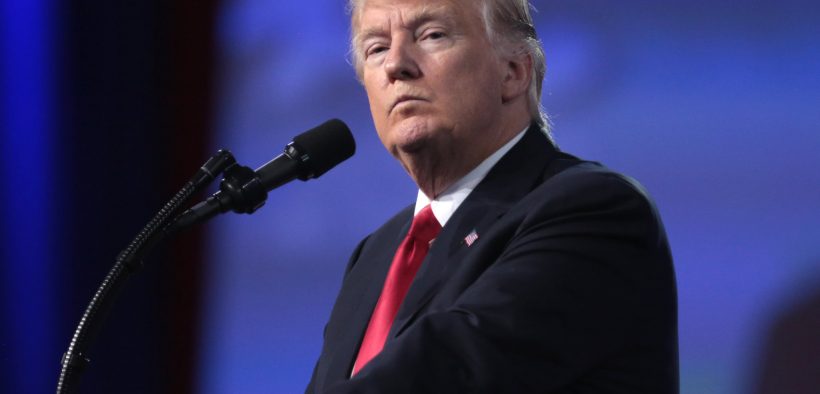Trump Lawyer: President Has Immunity Even if He Shot Someone

Trump’s lawyer William S. Consovoy pushed a dangerous argument on Wednesday – that the President of the U.S. is above the law while in office, even in cases of violent crimes.
President Trump’s lawyer argued in court on Wednesday that the president could not be prosecuted or criminally investigated even if he shot a person, citing an extremist interpretation of the “temporary presidential immunity” doctrine, which posits that a sitting president cannot be charged with a federal crime. As the Washington Post reported:
“The claim of ‘temporary presidential immunity’ from Trump’s private attorney William S. Consovoy came in court in response to a judge’s question that invoked the president’s own hypothetical scenario. As a candidate in 2016, Trump said his political support was so strong he could ‘stand in the middle of Fifth Avenue and shoot somebody’ and not ‘lose any voters.'”
“Local authorities couldn’t investigate? They couldn’t do anything about it?” asked Judge Denny Chin about a hypothetical shooting by President Trump. “Nothing could be done? That is your position?”
“That is correct,” Consovoy answered, stressing that the immunity would only last while Trump is in office.
DOJ and Presidential Immunity
The “presidential immunity” doctrine was most famously used by special counsel Robert Mueller, who refused to recommend charging the president with a crime in order to honor the Justice Department’s legal concept, but emphasized that the president could be prosecuted upon leaving office.
Many legal experts believe that Consovoy’s interpretation is absurd and dangerous, and others argue the Justice Department’s legal argument for presidential immunity doesn’t make sense:
“Mueller is faithfully following DOJ policy, but the DOJ policy is just plain wrong. Mueller says that a president can be investigated but neither indicted nor accused. And his argument for not accusing him of a crime is that it would be ‘unfair’ to accuse someone who does not have a courtroom to protest his or her innocence,” Cornell law professor Jens David Ohlin told Vox.
“But that is completely absurd: The president doesn’t have a courtroom to vindicate his innocence only because the DOJ has decided that his office makes him immune from indictment in the first place,” said Ohlin. “It’s a piece of circular reasoning that removes the president from the scope of generally applicable criminal laws.”
Does the Constitution Grant Presidential Immunity?
Other experts point out that there is no constitutional support for the concept that a president cannot be indicted or investigated:
“To be clear, there is nothing in the Constitution that states that a sitting president cannot be indicted,” Stetson University law professor Ciara Torres-Spelliscy told Vox. “Language from the Clinton v. Jones and US v. Nixon cases indicates that the president is not above the law. If federal prosecutors refuse to hold the president to the same legal standard as any other citizen, state attorneys general could certainly charge a president with a state crime with sufficient evidence.”
Trump’s lawyer made the claim as he asked the U.S. Court of Appeals for the 2nd Circuit to block a subpoena investigating the president’s financial records and hush-money payments to Stormy Daniels and Karen McDougal, a federal campaign finance violation that led to the conviction of Trump’s former lawyer Michael Cohen. Critics argue that the immunity doctrine would permit Trump to act with total impunity if taken seriously.
“This had always been where the argument led, but now that it’s out in the open, hopefully everyone understands just how dangerous it is,” Steve Vladeck, a University of Texas at Austin law professor and constitutional expert, told the Post.
Trump’s argument could “easily allow the president to get away with major crimes. It’s not enough to say that they could investigate after he leaves office, since evidence can disappear or spoil if it isn’t collected promptly,” Cornell Law School professor Josh Chafetz told the Post.
Carey Dunne, general counsel for the Manhattan District Attorney’s Office, told the court “there is no such thing as presidential immunity for tax returns” and that “they’re making this up.”
Dunne added: “[President Trump] may view them as embarrassing or sensitive, but tax returns do in fact get subpoenaed all the time in financial investigations.”
U.S. District Judge Victor Marrero rejected the broad interpretation of presidential immunity earlier this month, calling it “virtually limitless” and describing Trump’s argument as “repugnant to the nation’s fundamental structure and constitutional values.”









